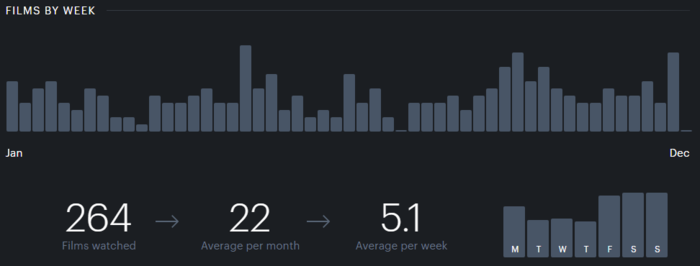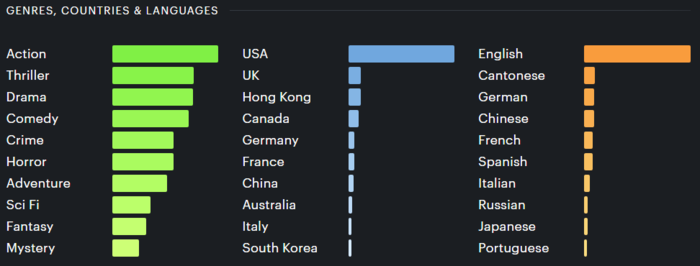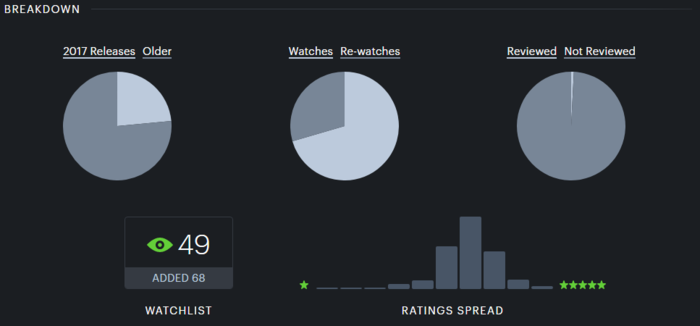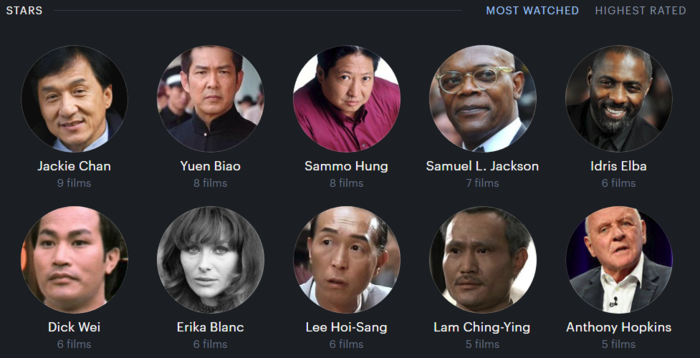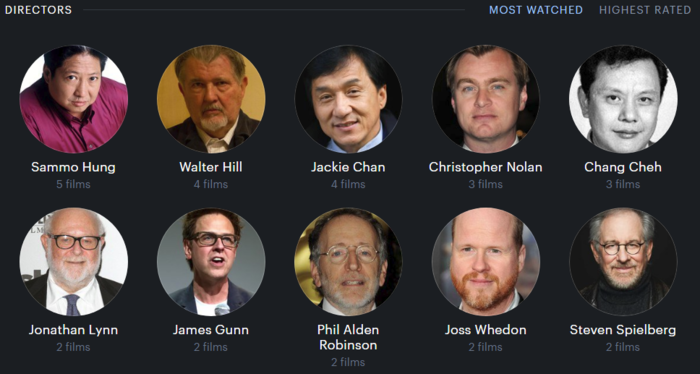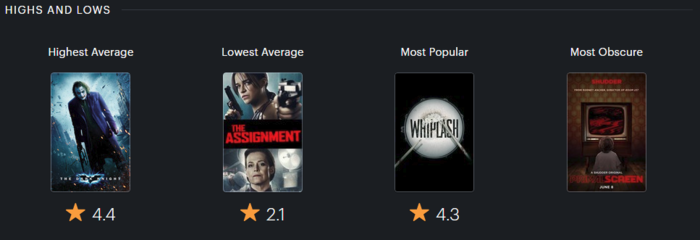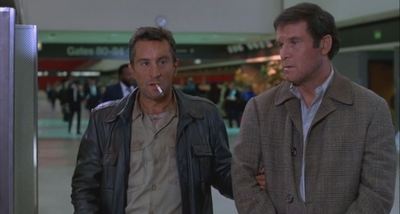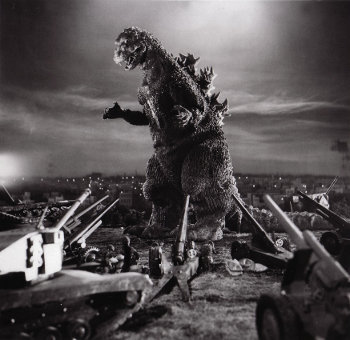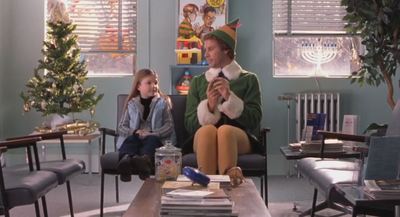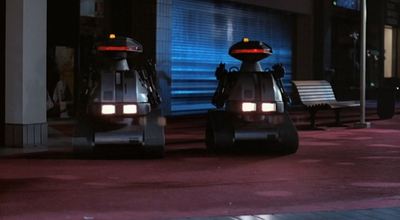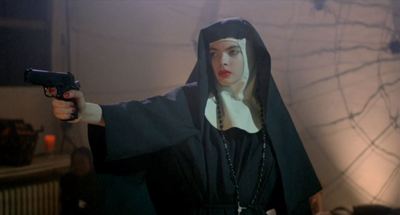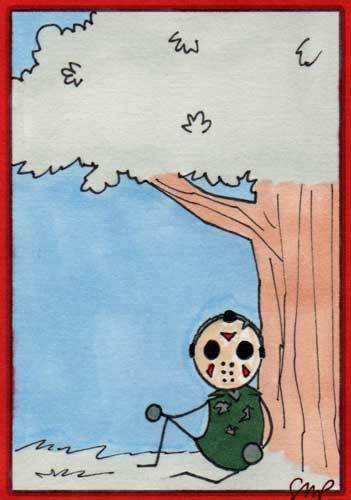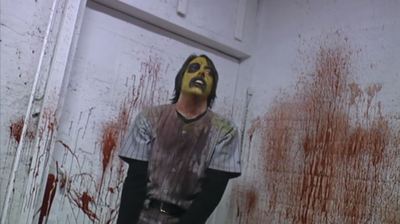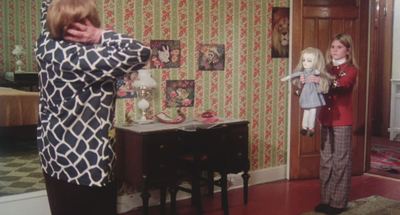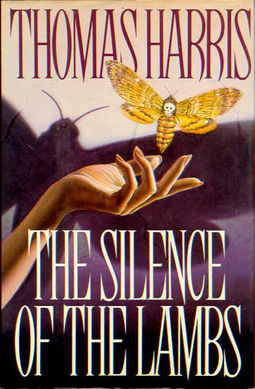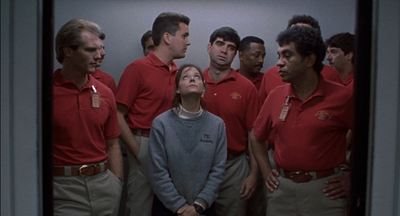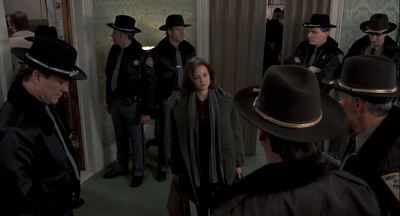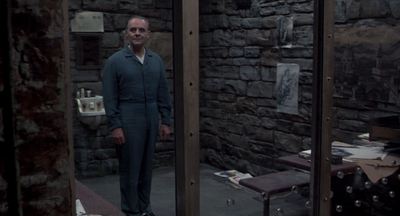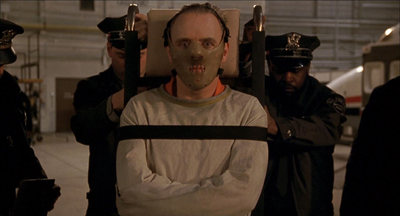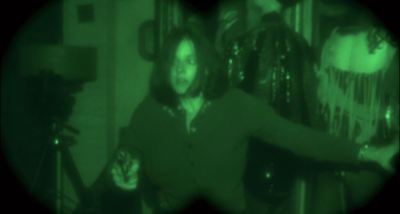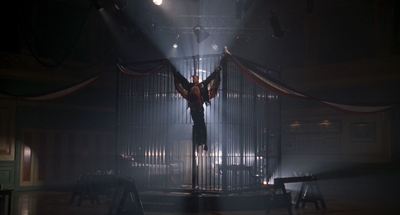2017 Kaedrin Movie Awards
Welcome to the twelfth annual Kaedrin Movie Awards! A dozen years years! Over a decade of dauntless dorkery! The idea is to recognize films for various achievements that don’t always reflect well on top 10 lists or traditional awards. There are lots of formal award categories and nominees listed below, but once those are announced, we’ll also leave some room for Arbitrary Awards that are more goofy and freeform. Finally, we’ll post a traditional top 10 list (usually sometime in mid-February). But first up is the awards! [Previous Installments here: 2006 | 2007 | 2008 | 2009 | 2010 | 2011 | 2012 | 2013 | 2014 | 2015 | 2016]
Standard disclaimers apply: It must be a 2017 movie (with the one caveat that some 2016 films were not accessible until 2017 and are thus eligible under fiat) and I obviously have to have seen the movie. As of this writing, I’ve seen 86 movies that would be considered a 2017 release. Significantly less than your typical critic, but more than your average moviegoer and enough to populate these awards. Obviously this is a personal exercise that is subjective in nature, but the world would be a boring place indeed if we all loved the same things for the same reasons, right? Sound good? Let’s get this party started:
Best Villain/Badass
Another middling year for villainy. I didn’t have any problem populating the list, but true standouts were rare. As usual, my picks in this category are limited to individuals, not groups (i.e. no vampires or zombies as a general menace, etc…) or ideas.
- Ego, played by Kurt Russell in Guardians of the Galaxy Vol. 2
- David, played by Michael Fassbender in Alien: Covenant
- Bats, played by Jamie Foxx in Baby Driver
- Adrian Toomes / Vulture, played by Michael Keaton in Spider-Man: Homecoming
- Poppy, played by Julianne Moore in Kingsman: The Golden Circle
- Pennywise the Clown, played by Bill Skarsgård in It
- Hela, played by Cate Blanchett in Thor: Ragnarok
- The Colonel, played by Woody Harrelson in War for the Planet of the Apes
- Vortigern, played by Jude Law in King Arthur: Legend of the Sword
- Ben / Kylo Ren, played by Adam Driver in Star Wars: The Last Jedi
Best Hero/Badass
A much better year for heroism, both in terms of the villainy they faced, but also with respect to last year, which was severely lackluster. Again limited to individuals and not groups.
- John Wick, played by Keanu Reeves in John Wick: Chapter 2
- Laura, played by Dafne Keen in Logan
- Ord, played by Armie Hammer in Free Fire
- Diana / Wonder Woman, played by Gal Gadot in Wonder Woman
- Baby, played by Ansel Elgort in Baby Driver
- Peter Parker / Spider-Man, played by Tom Holland in Spider-Man: Homecoming
- Lorraine Broughton, played by Charlize Theron in Atomic Blonde
- Farrier, played by Tom Hardy in Dunkirk
- Bradley Thomas, played by Vince Vaughn in Brawl in Cell Block 99
- Sook-hee, played by Ok-bin Kim in The Villainess
- Rey, played by Daisey Ridley in Star Wars: The Last Jedi
Best Comedic Performance
This category is sometimes difficult to populate because comedy so often comes in the form of an ensemble and that does impact this year, to an extent. Looking through my list of films, though, I see very few straight comedies this year, which is a failing on my part, I guess. Still some decent choices available though.
- Kumail Nanjiani in The Big Sick
- Taika Waititi (voice) in Thor: Ragnarok
- Saoirse Ronan in Lady Bird
- James Franco in The Disaster Artist
- LilRel Howery in Get Out
- Paul Walter Hauser in I, Tonya
- James Urbaniak in Dave Made a Maze
Breakthrough Performance
Always an interesting category to populate. Sometimes, it’s not so much about someone’s industry breakthrough, but a more personal breakthrough. This can happen even with established actors who put out a performance that forces me to reconsider what they’re capable of. This year, we’ve got more of a moderate crop of young up-and-comers. The main criteria for this category was if I watched a movie, then immediately looking up the actor/actress on IMDB to see what else they’ve done (or where they came from). A somewhat vague category, but that’s why these awards are fun.
- Daniel Kaluuya in Get Out
- Dafne Keen in Logan
- Ahn Seo-hyun in Okja
- Beanie Feldstein in Lady Bird
- Rob Morgan in Mudbound
- Robert Pattinson in The Lost City of Z and Good Time
- Sophia Lillis in It
Most Visually Stunning
Sometimes even bad movies can look really great… A pretty good year for this sort of thing, with a good mix of spectacle and more sober, well-photographed beauty.
- Baby Driver
- Dunkirk
- Valerian and the City of a Thousand Planets
- Blade Runner 2049
- Okja
- Coco
- A Cure for Wellness
- Star Wars: The Last Jedi
- Personal Shopper
- Columbus
- Phantom Thread
Best Sci-Fi or Horror Film
I like to give a little love to my favorite genres, hence this category. It may seem like an odd combo, but they’re basically my two favorite genres, and there aren’t always enough movies in one or the other to always justify a full category, so I mash them together. A pretty decent balance this year, though.
- Get Out
- Colossal
- Valerian and the City of a Thousand Planets
- Blade Runner 2049
- It
- Happy Death Day
- War for the Planet of the Apes
- Gerald’s Game
- The Girl with All the Gifts
- The Void
- Better Watch Out
- Your Name
- Star Wars: The Last Jedi
Best Sequel/Reboot
Often a difficult category to populate, and there were plenty of duds this year, but there were still a surprising number of worthwhile sequels/reboots this year.
- John Wick: Chapter 2
- Logan
- Spider-Man: Homecoming
- It
- Blade Runner 2049
- Thor: Ragnarok
- Justice League
- War for the Planet of the Apes
- Star Wars: The Last Jedi
Biggest Disappointment
A category usually dominated by sequels or remakes, but oddly, this year only features a couple of those. This category is definitely weird in that sometimes I actually enjoy these movies… but my expectations were just too high when I saw them. Related reading: Joe Posnanski’s Plus-Minus Scale (these movies scored especially poor on that scale).
- Ghost in the Shell
- The Discovery
- The Lost City of Z
- The Mummy
- The Dark Tower
- Killing Gunther
- Columbus
- Magellan
Best Action Sequences
This award isn’t for individual action sequences, but rather an overall estimation of each film, and this has been a pretty good year for action.
- John Wick: Chapter 2
- Logan
- Free Fire
- Wonder Woman
- Baby Driver
- Three
- Valerian and the City of a Thousand Planets
- Atomic Blonde
- Kingsman: The Golden Circle
- The Villainess
Best Plot Twist/Surprise
Well, I suppose even listing nominees here constitutes something of a spoiler, but it’s a risk we’ll have to take, right?
- Get Out
- Split
- Logan Lucky
- Blade Runner 2049
- Happy Death Day
- The Villainess
- Better Watch Out
- Bad Genius
- Your Name
Best High Concept Film
A nebulous category, to be sure, but a fun one because these are generally interesting movies. Lots of borderline cases this year, but a few strong standouts…
2017’s 2016 Movie of the Year
There are always movies I miss out on, whether due to availability or laziness, but when I do catch up with them, I’m often taken with them. Sometimes a very difficult category to populate, maybe because I didn’t see much after I posted last year’s Top 10, or didn’t like what I did manage to see, or just plain forgot that I saw it (which, to be fair, probably says something about the movie’s chances). Frankly, not a lot going on this year for this category…
Phew! I feel like I’m a bit overpopulated in my nominees, but what are you gonna do? Winners to be announced next week, followed by Arbitrary Awards, a traditional Top 10 of the year, and finally some Oscars commentary. Stay tuned!
